ON JULY 10, 1999, the country held its collective breath as Briana Scurry, the U.S. Women’s National Team goalkeeper, stepped into the net to face China in a penalty kick shootout in front of a sold-out Rose Bowl stadium. Many will remember Briana diving to her left to keep one of the shots out of the net, pumping her fists with fiery intensity and giving her team the chance to win it all. And nearly everyone will remember Brandi Chastain stepping up to hit the win-clenching shot and subsequently ripping off her shirt, exposing her black Nike sports bra and flexing her muscles for the world to see. No one, however, will remember Briana running over to her then-girlfriend in the stands to give her a celebratory kiss—because the camera panned away quickly. America was ready for women to compete in front of massive crowds, but it was not ready for a same-sex couple to kiss on national television.
Fast forward exactly twenty years and the USWNT won another World Cup, this time in France. The team, both diverse and dominant, flourished despite being embroiled in a lawsuit with its employer for pay equity—never folding under the massive pressure placed upon its collective shoulders. The team was led by the outspoken, bold, and openly gay Megan Rapinoe who battled the President on Twitter and won the Golden Ball as the tournament’s best player. Going even further, she emphatically stated, “GO GAYS!” in the middle of a press conference. “You can’t win a championship without gays on your team—it’s pretty much never been done before ever. Science, right there.”
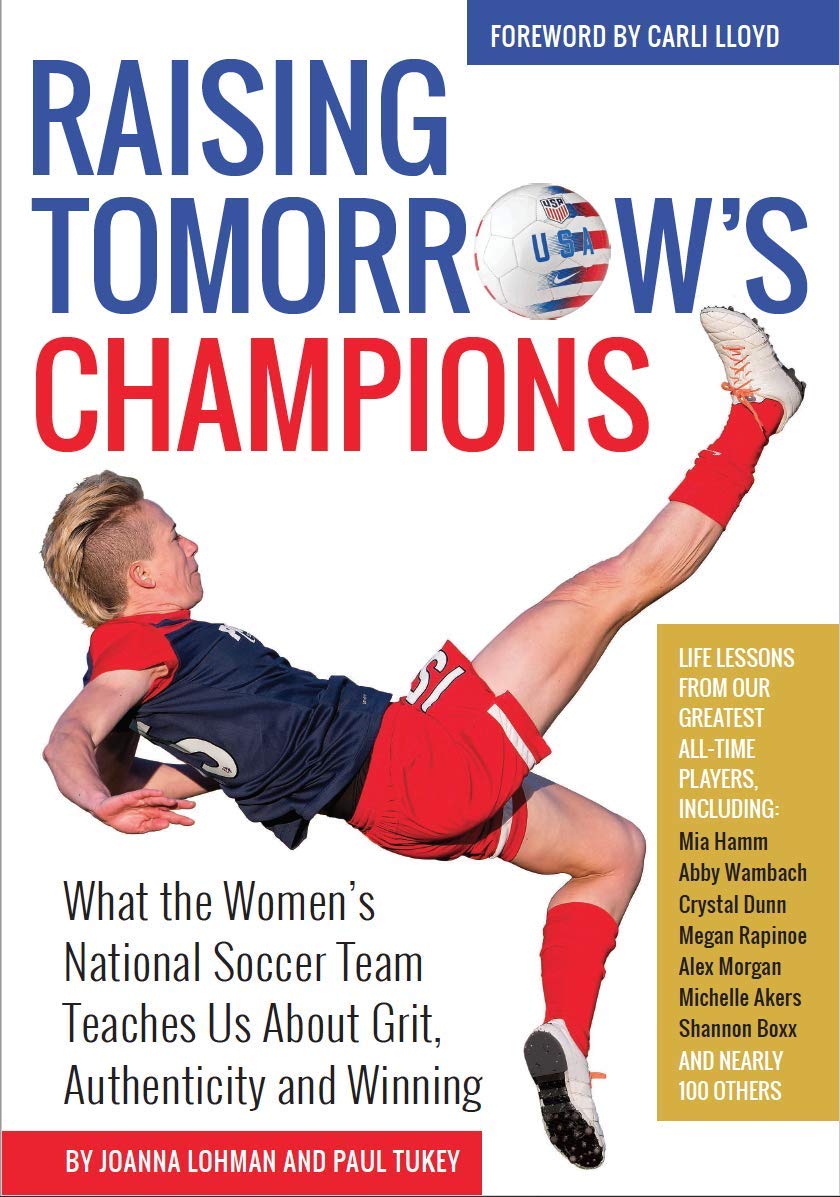 More than just another one of Megan’s provocative sound bites that resonated around the world, the statement is also true. While researching for our book Raising Tomorrow’s Champions: What the Women’s National Soccer Team Teaches Us About Grit, Authenticity and Winning, my co-writer and I confirmed in our interviews that the U.S. has never fielded a National Team roster without multiple lesbian players, dating back to 1985 when, among others, goalies Kim Wyant and Ruth Harker were out to their teammates, but still hiding that fact from most of the outside world. The same was true in 1999, when Briana and fellow goalie, Saskia Webber, among others, were lesbian members of Mia Hamm’s team that won the hearts and minds of America in the Rose Bowl.
More than just another one of Megan’s provocative sound bites that resonated around the world, the statement is also true. While researching for our book Raising Tomorrow’s Champions: What the Women’s National Soccer Team Teaches Us About Grit, Authenticity and Winning, my co-writer and I confirmed in our interviews that the U.S. has never fielded a National Team roster without multiple lesbian players, dating back to 1985 when, among others, goalies Kim Wyant and Ruth Harker were out to their teammates, but still hiding that fact from most of the outside world. The same was true in 1999, when Briana and fellow goalie, Saskia Webber, among others, were lesbian members of Mia Hamm’s team that won the hearts and minds of America in the Rose Bowl.
By extension, the further a girl progresses in soccer, or any other sport for that matter, the more likely it is she—and her family—will come into contact with diverse sexualities and gender expressions that still run counter to certain cultural and religious acceptance thresholds. “It didn’t take much to look around the locker room and say, ‘I get it. You’re gay. You’re gay. And you’re gay.’ But obviously people didn’t feel comfortable sharing it back then,” said Stacey Enos, a member of the 1985 squad. “I’m going to be frank: That’s one reason I had a hard time sometimes going to certain events where you didn’t feel like you could be yourself and not get judged for it. Nobody wants to be judged.”
So, what changed in those twenty years? For one, Abby Wambach. By the time she retired from the game, Abby didn’t want to leave any gray area whatsoever about the intentions of her future actions. “For so many years I never wanted to be this person who put myself on a mountain and screamed from the mountaintops about my sexuality because it didn’t matter to the way that I played the game, but it does matter to who I am as a person,” she told a National Press Club audience in October 2015. She was ready to speak out on behalf of those who were voiceless and who “may not feel comfortable in their own skin. I want to advocate for them, because if they don’t feel comfortable, I will be the person to tell them ‘You are loved and you are heard.’”
Lesser-known players, like Saskia Weber, Angela Hucles, and so many others who confidently went about their lives, continued to crack the door open. Angela credits Briana Scurry, Abby Wambach, and other gay National Teamers of that era because they made her feel like she was never alone, and everyone else inside the locker room always made her feel like her (or anyone else’s) sexuality never mattered. She still laughs at the thoughtfulness, yet irony, of Mia Hamm’s gift welcoming her to the team: a T-shirt stating “Boy Crazy” on the front. Angela tells us that “Later on, Mia said, ‘Oh my gosh, Angie, I’m so sorry, I didn’t know! Why didn’t you say anything?’ I just thought it was cool that Mia Hamm bought me a shirt.”
Considering the statistics in America still paint a grim picture with more than 70% of LGBTQ+ youth feeling sports are not welcoming of their differences, the U.S. Women’s National Team has set out to be an affirmative agent for change. After the 2019 World Cup victory, the team rode atop buses while the streets teemed with screaming fans in New York City. At 11:44 a.m. in front of New York City Hall, Megan Rapinoe strode to the lectern with the same confidence she strode to take penalty kicks. She declared with raw honesty and authenticity: “This group is so resilient, is so tough, has such a sense of humor, is just so badass. … We’re chillin.’ We’ve got tea sippin.’ We’ve got celebrations. We have pink hair and purple hair. We have tattoos and dreadlocks. We’ve got white girls and black girls, and everything in between. Straight girls and gay girls.”
In an op-ed for the Washington Post in March 2021, Megan went a step further as an advocate for inclusion. In response to an effort from lawmakers in over 25 states to ban transgender young people from sport, Megan wrote: “I want every transgender kid out there to know that they can live their dreams and be true to who they are. For them to realize those dreams, they need to be allowed to play.” For the record, this is a position that I also share. Having traveled to over 45 countries, I realize, above all, that participating in sport is a human right.
In 1999, I watched in awe of Briana, Mia, and Brandi and devoted my life to following in their footsteps. Now, I watch in awe of Megan, Carli Lloyd, and Crystal Dunn and devote my life to amplifying their legacy. When the rest of the world is as opening and accepting as the inside of the National Team’s locker room, we will all be champions.
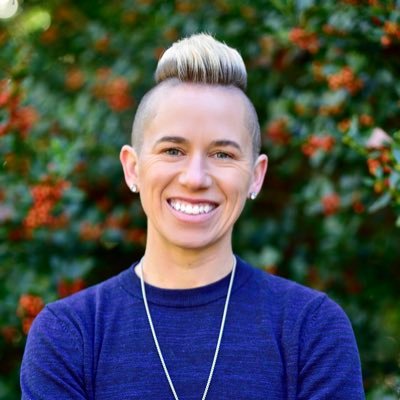
Joanna Lohman played for nine years with the National Team and became the first player in Washington Spirit history to have her jersey retired. She is a human rights activist and teacher, serves as a sports diplomat for the State Department, and strives to live an unabashedly authentic life based on deep-rooted acceptance of differences.


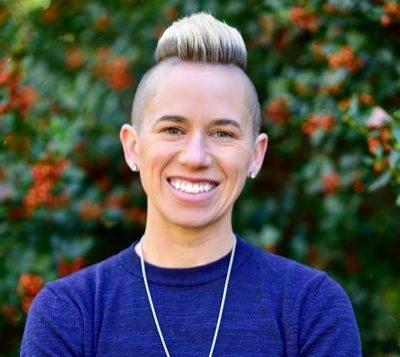

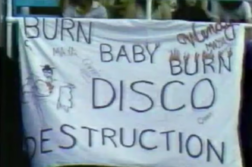
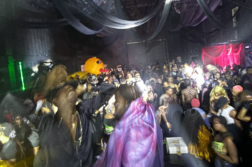

Discussion1 Comment
I love this!!! I have so much respect for LGBTQ athletes. The crap they have to go through just to play is just horrible. Where are their rights? We are all created equal so what is the problem with treating each other equally. That goes for sexual orientation, skin color, and any other ways in which people may see us as “not worthy”. I am not gay but I support them 100% in their fight for equality.